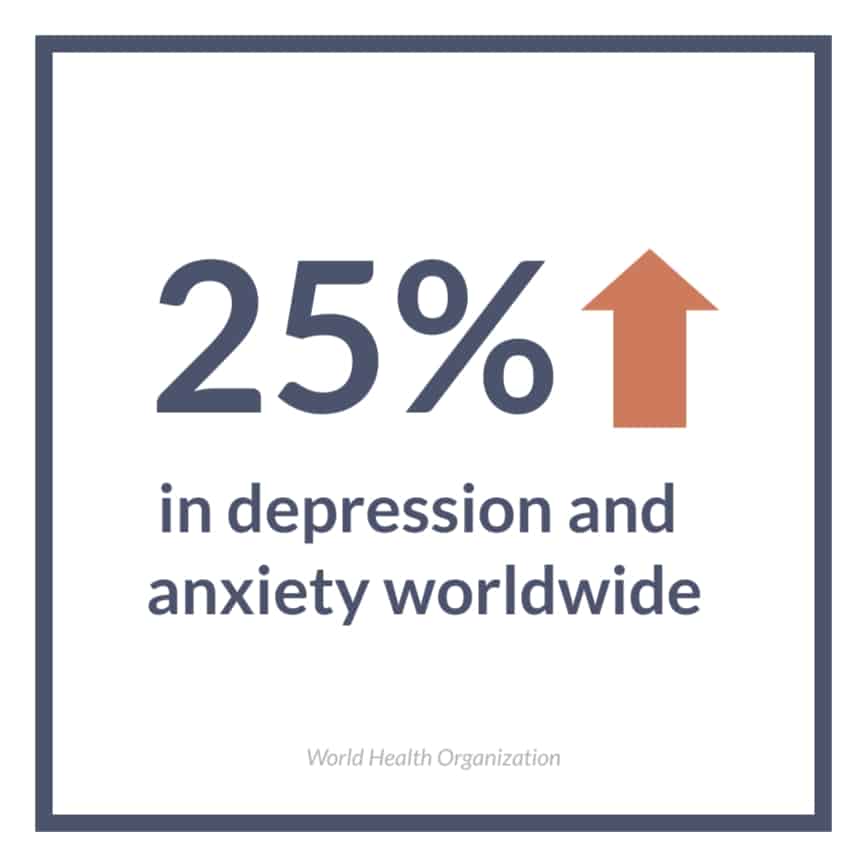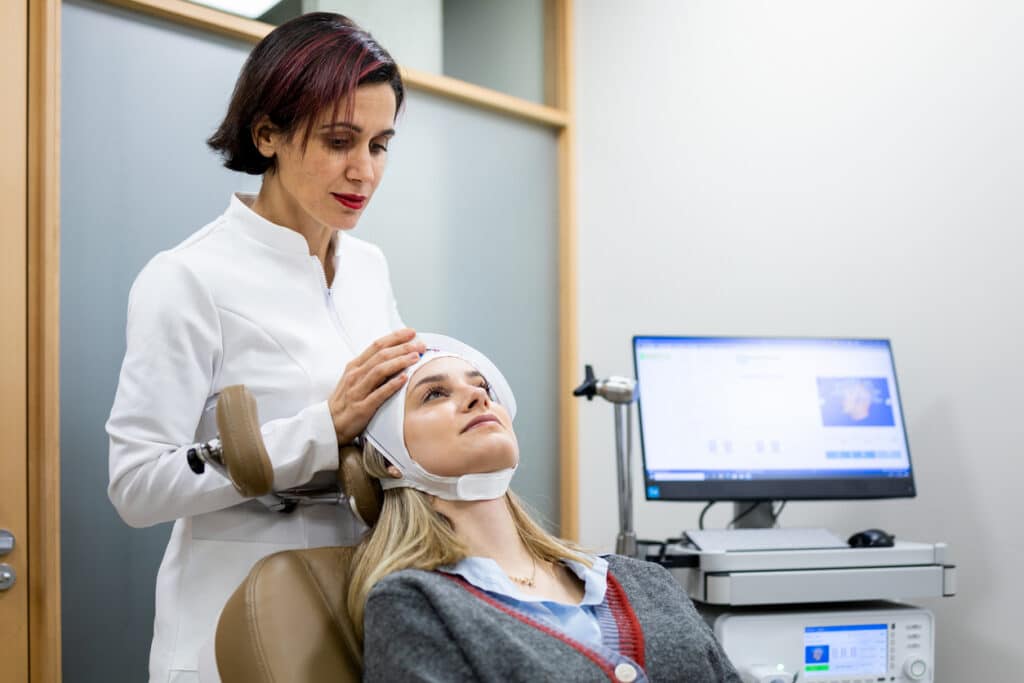By Christa Banister
If a pros and cons list were to be made about the COVID era, I think we all know which side of the list would be longer. But as we reorganized our routines and adapted to new ways of doing life, one tangible development for the “pro” column would be the deliberate strides made in spotlighting mental health. In addition to destigmatizing the conversations once considered taboo among family, friends, and coworkers, COVID helped make it OK to admit you weren’t OK.
With the 25% increase in depression and anxiety worldwide during the pandemic, reported by the World Health Organization, and the CDC ranking suicide in the top nine leading causes of death in the US in 2020 (despite its decline), the conversation surrounding mental illness awareness became an absolute necessity.

As a result, the number of people showing interest in counseling services has skyrocketed. And thanks to telehealth, various apps, and online therapy, mental health services have become infinitely more accessible and convenient.
We now understand the value of displaying trigger warnings before showing something sensitive online. Many television shows have followed suit when the storyline involves overdoses, sexual assault, or eating disorders.
How we talk about mental health has also changed. A kinder, new vocabulary began to emerge that’s more mindful, says NBC News. Being more sensitive to everyone’s unique life experiences has helped us grasp why we say someone “died by suicide” rather than, “he killed himself.” The truth is we never know what someone is going through.
While VeryWellMind.com reports significant leaps have been made in the workplace — including more flexible schedules and an uptick in mental health resources — there are still a number of misconceptions about mental illness that indicate we’ve got a long way to go.
Common Misconceptions About Mental Illness
In the half-century that Andrew Scull, an author, and professor of sociology and science studies at the University of California in San Diego, has been studying mental illness, he continues to be surprised by how much he doesn’t know. He notes in an interview in the Los Angeles Times how solutions to mental illness still feel “elusive” and “out of reach.”
Considering there is no one-size-fits-all remedy for those struggling, kicking common misconceptions about mental illness to the curb is essential. For example, some people believe the mental health conversation has nothing to do with them, that it’s garnering more attention than it deserves, and isn’t as common as many think.
Nothing could be further from the truth. In 2020, about one in five American adults experienced a mental health issue, according to MentalHealth.gov. No matter age, socioeconomics, or whether you live in the country, suburbs, or a major city, one in 20 Americans navigate serious mental illness, including bipolar disorder, depression, and schizophrenia.
Another of the more alarming mental health misconceptions is that children are too young to experience these struggles. However, research shows that even very young children may show early warning signs. In half of all mental health disorders, the first signs show up before age 14.
When it comes to mental health awareness, false stereotypes perpetuated in popular movies and television shows don’t always provide an accurate snapshot.
When it comes to mental health awareness, false stereotypes perpetuated in popular movies and television shows don’t always provide an accurate snapshot. In many stories, mental illness misconceptions often include men and women with violent, unpredictable behavior. They may not be able to simultaneously hold a job and manage their condition. Both of these assertions are not supported by data.
Not only are men and women with mental health needs just as productive on the job, but the vast majority aren’t any more violent than anyone else. If anything, those with severe mental illness are 10 times more likely to be a victim of violent crime than the general population.
Maintaining Mental Illness Awareness
As COVID numbers have trended downward and many of us return to the patterns of pre-pandemic life, it’s important to remember that being conscious of your mental health isn’t a trend or a coping mechanism for a once-in-a-lifetime event. It’s as crucial as your annual physical, those twice-a-year teeth cleanings, and staying active and eating healthy.
As COVID numbers have trended downward and many of us return to the patterns of pre-pandemic life, it’s important to remember that being conscious of your mental health isn’t a trend or a coping mechanism for a once-in-a-lifetime event.
So, what can we do to make these new habits stick? Here are a few suggestions:
- Keep the conversation going and show empathy for people going through a rough season or difficult life transition
- Prioritize your mental health and support local mental health facilities through word of mouth, volunteering, or contributing financially if you’re able
- Advocate for everyone to have access to mental health resources
- Seek out therapy that works for you from someone you trust
- Invest in your social connections
- Be mindful and make time for self-care
- Set healthy boundaries at work and in relationships
Mental Health Is Always A Priority
Do you or someone you love struggle with mental health? You’ll never have to worry about mental illness misconceptions at The Meadows. Our caring professionals use proven treatment models to help you on your way to healing and beginning a new chapter. For more information on how you can start your recovery journey, contact us today.



